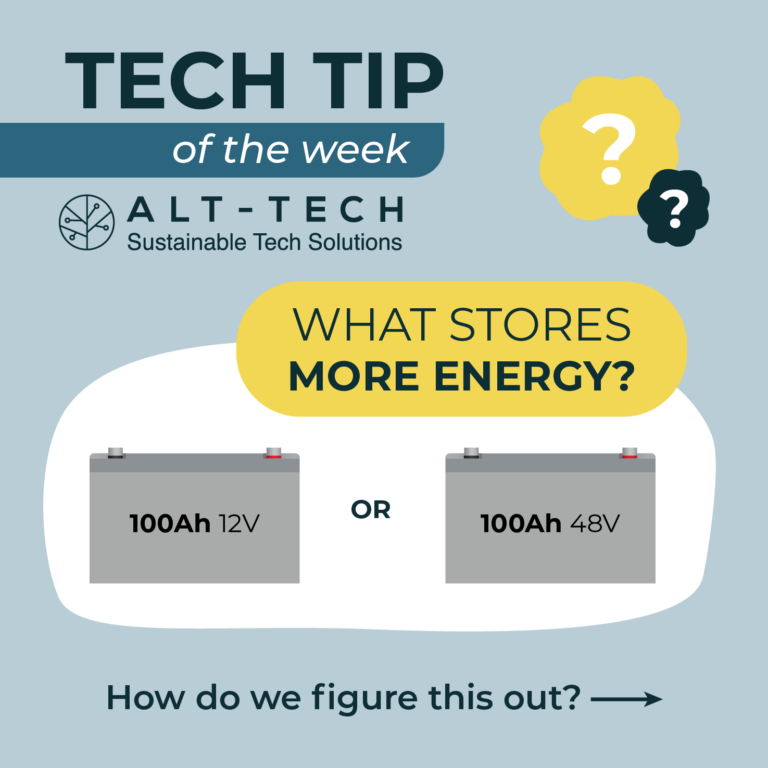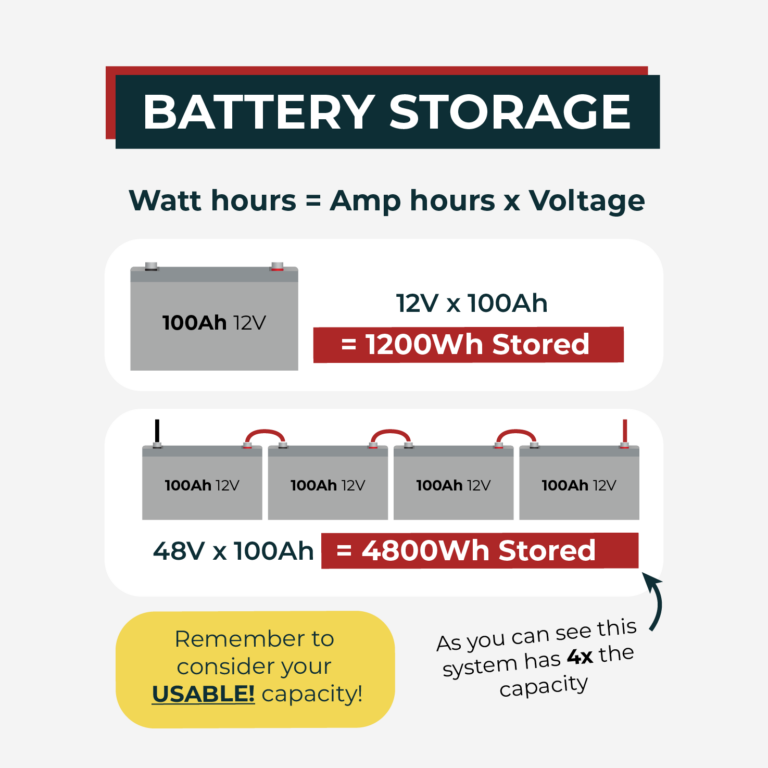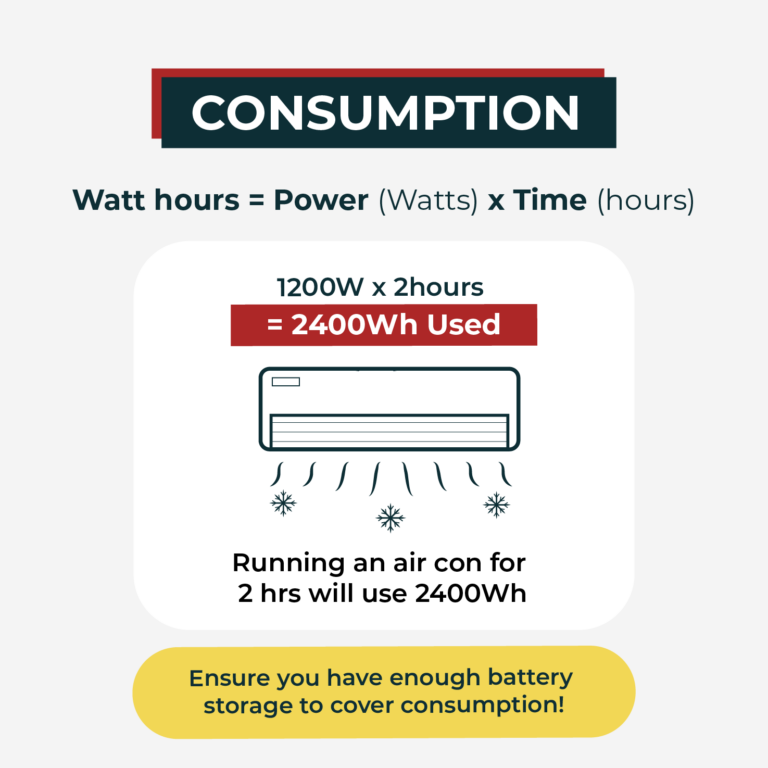Your cart is currently empty!
Calculating Watt-hours




Imagine you have a 100Ah 12v battery and a 100Ah 48V battery, which one stores more energy?
The 48V 100Ah battery stores 4x the power of the 12V 100Ah battery. How is this possible? Don’t they have the same 100Ah capacity?
Yes they have the same Amp-Hour rating, however, Amp-Hours are not the full story. In fact, amp hours are, in our opinion, not a very useful measure of a battery’s capacity. Watt hours are a far more useful measure of battery capacity.
Watt hours are similar to Amp-Hours in that they measure the storage of a battery. However, Watt hours are independant of the voltage of the battery. So where Amp-Hours measure how many amps can be supplied over time, watt hours measure how many watts can be supplied over time.
A 100Ah battery as we know will supply 1A for 100h.
A 100Wh battery will supply 1W of power for 100h.
See how Watt-Hours are much more useful for determining how long you can run a certain wattage load. It is easy to see how a 100Wh battery can supply a 100W load for 1 hour. Watt-Hours remove the confusion assosciated with battery voltage and Amp-Hours.
There are two useful ways of calculating watt hours.
This first equation is useful for calculating the Watt-Hour storage of a battery:
Watt-Hours (Wh) = Battery Capacity in Amp-Hours (Ah) x Battery voltage (V)
Example:
100Ah x 12V = 1200Wh of energy stored
100Ah x 48V = 4800Wh of energy stored
This second equation is useful for measuring how many Watt-Hours a device might use over time:
Watt-Hours (Wh) = Power in Watts (W) x Time in Hours (H)
Example:
Running a 1000W load for 6 hours. How many Watt-Hours would that use.
1000W x 6 hours = 6000Wh or 6kWh
Leave a Reply
You must be logged in to post a comment.